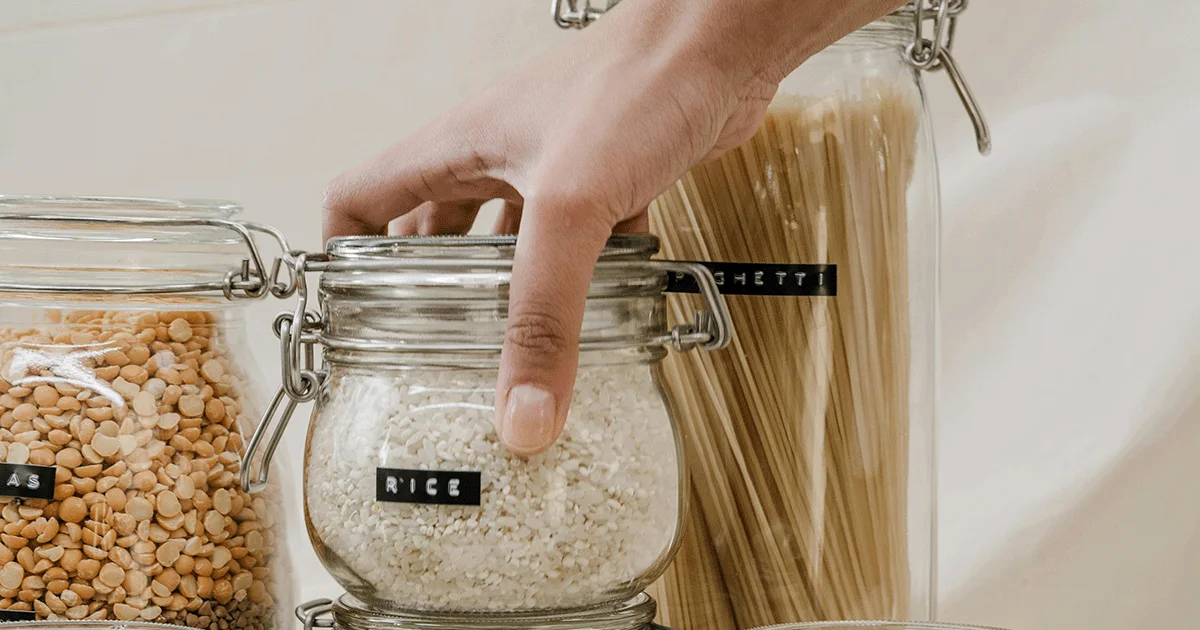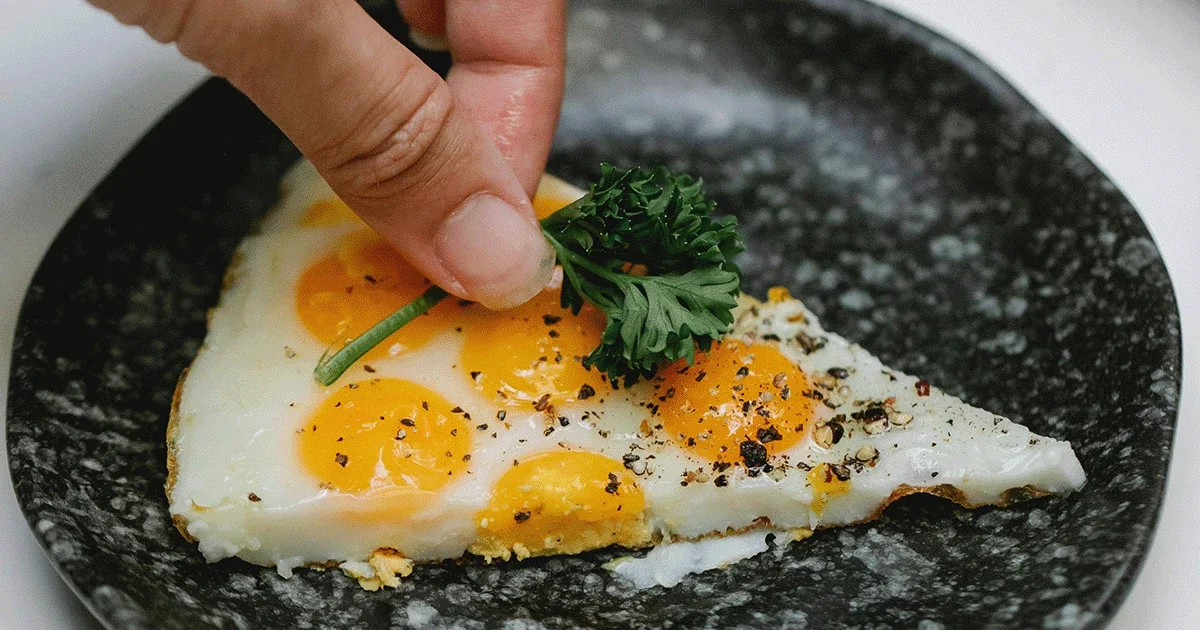Juice cleanse: the truth about this trendy detox

Reviewed by Steve Silvestro, MD, Ro,
Written by Tobi Ash, MBA, RN, BSN
last updated: Apr 27, 2021
6 min read
Here's what we'll cover
You may have seen celebrities and influencers talk about the health benefits of juicing and losing weight as part of a healthy lifestyle. It's no secret that eating and increasing your veggie and fruit intake is good for you and your health. So, it seems to make sense that starting an organic juice cleanse or juice detox might help you lose weight, detoxify your body, and improve your health. After all, you're just drinking fruit and vegetable juices, right?
Is there any truth to these claims, though? The risks probably outweigh the benefits (Rousseau, 2015).
Weight loss
Get access to GLP-1 medication (if prescribed) and 1:1 support to meet your weight goals
What is a juice cleanse?
Alternative healthcare practitioners and the raw food movement have recommended juicing for health and detoxifying the body for close to 90 years. The belief is that juicing extracts more vitamins and minerals from fruits and vegetables than you get from eating them. The theory is that this makes it easier for your digestive system enzymes to do their job. Proponents claim this alleviates bloating, decreasing inflammation, and helping your body work better. Some believe juicing can even help with cancer (Cassileth, 2010).
The truth is that you may lose some weight while on a juice cleanse, but there are some critical health risks you may want to read about pre-cleanse.
Let’s go over how a juice cleanse works:
There are different types of juice cleanses but all restrict you from eating sugar, caffeine, processed food, and most solid food.
You drink only fresh juices made of fruits and veggies and clear liquids during a specific time.
Some juice cleanses allow you to have a green smoothie, eat leafy greens, or small vegan meals or snacks once per day.
How long is a juice cleanse?
Juice cleanses range anywhere from one to 10 days (though the average is three days to one week) or even longer, depending on which protocol you use.
There are several different types of juice cleansing or detoxification protocols. Some only allow drinking vegetable and fruit juices and other liquids. Others want you to drink the juices and take dietary supplements. Some want you to drink only certain (usually purchased and cold-pressed) juices in a time-based or specific order. Others want you to drink juices and do a colon cleanse during your juice cleanse. A colon cleanse involves using enemas or having colonic hydrotherapy or colonic irrigation (Cassileth, 2010).
You can purchase cold-pressed juices, or you can do it on your own at home with a blender or juicer.
What’s in juice cleanses?
Some companies may tout that their juices contain "superfoods." All juices are made with natural fruits and vegetables and may come as a single ingredient or blends (like a "green juice"). Most juices involved in cleanses include raw leafy greens like kale, spinach, lettuce, and parsley, while others add cucumbers, celery, beets, or carrots. Raw fruits may consist of berries, mango, apple, lemon, and pineapple. Some people add spices like cayenne, vanilla, ginger, Himalayan pink or sea salt, turmeric, and mint, and others include almond milk or shots of extra vitamin C (Henning, 2017).
Most juice cleanses will warn you to relax and chill and not exercise too much while on a juice detox for reasons we’ll discuss below.
Do you lose fat on a juice cleanse?
Drinking only juice or other liquids will help you lose weight, at least temporarily, because you aren’t eating. It’s a form of calorie restriction (Obert, 2017).
The recommended average daily caloric intake is 2,000 calories for women and 2,500 for men. You use the calories from your food to energize your body. If you eat less than the maintenance energy requirement, you will use the energy stored in your body. This energy is called glycogen, and it's stored together with water in your muscles. When you restrict your eating, you lose this water as you use up the glycogen (USHHS, 2015).
There are about 1,300 calories in a daily juice cleanse, which is far fewer calories than most people need in a day just to live (Henning, 2017).
When consuming so few calories, you may get more tired or dizzy because you aren't eating anywhere near enough to fuel your body (Hoddy, 2015). Low calorie intake is why some juice cleanses want you to take it easy on the days you are just juicing.
What else does a juice cleanse do to your body?
While you may (temporarily) lose weight on a juice cleanse, juice cleanses don’t give you sufficient protein, fiber, or fat. Juice cleanses that last more than three days can impact your large intestine (colon) and your muscles. If you don’t feed your body sufficient protein, your body may start to break down your muscles to provide energy (Manickam, 2020).
If you don’t have enough fiber in your gut to move things along, you may develop diarrhea or constipation. Fiber also has another job. Most people who want to do a juice cleanse make it a point to avoid sugar. But fiber, especially insoluble fiber, helps absorb sugar. Without fiber, your body is taking in a lot more sugar than it should, in the form of fructose from juicing (Heyman, 2017).
Most juice cleanses and other detox protocols don’t specify exactly what they are detoxing you from. They rely on your body’s natural detoxifying organs to clean you out: your kidneys, liver, and colon. A survey of most commercial juice cleanses shows they don’t test their effectiveness or even claim which toxins they are removing. They only list conditions that their juices supposedly will help (Klein, 2015).
Risk-benefit analysis of juice cleanses
So, should you do a juice cleanse? Let’s look at the benefits vs. the risks.
Benefits of juice cleanses
Proponents of juice cleanses say that people don’t eat many vegetables and fruits. Going on a juice cleanse means these people are now bringing extra nutrients, phytochemicals, antioxidants, and other compounds to improve their overall health by drinking 3–8 juices a day (Henning, 2017).
People do lose weight on juice cleanses due to calorie restriction and “water weight.” However, this weight loss doesn’t last too long. Once you start eating again, you may gain all the weight you lost (Henning, 2017).
20 participants in a 3-day juice cleanse study had an average weight loss of just under four pounds (1.75 kg). After two weeks, they had gained back almost half that weight—about two pounds (0.91 kg). There was a side benefit to the juice fast, though. Some study participants increased their good gut bacteria and decreased the amount of illness-causing bacteria (Henning, 2017).
Some people have been struggling with weight loss and do lose weight on a juice cleanse. A kickstart to weight loss can give some people a sense of accomplishment and motivation to continue losing weight (Montesi, 2016).
Other people believe that juice cleanses help them “shrink their stomachs” and also helps to motivate them to eat less food once they go back to eating regularly (Thom, 2021).
Juice cleanses can prime you to modify your eating habits. There’s a lot of research on how fasting can have health benefits. Being on a juice cleanse is a type of modified or near-fasting. However, you can save yourself some money by limiting your eating to a certain number of hours per day, an approach often called intermittent fasting. There are many types of intermittent fasting, but a common approach is to only eat for eight hours and just drink water or unsweetened drinks during the other 16 hours. An added benefit: you don’t have to buy expensive juices (Stockman, 2018).
Risks of juice cleanse programs
Juices rarely contain fiber and typically have a great deal of fructose, a form of sugar. High fructose initially raises the blood sugar and then drops it down faster than normal, which can be a problem for people prone to low blood sugar (hypoglycemia), especially if they are pre-diabetic. Some of the symptoms of low blood sugar include dehydration, headache, hunger, irritability (some people call this "hangry"), low energy levels, weakness, and fainting (Markus, 2020).
Some juice cleanse or detoxifying protocols want you to take laxatives or do colonic hydrotherapy/irrigation. For some people, just a regular juice cleanse can cause diarrhea. If you have diarrhea or overstimulate your large intestine, you could become dehydrated and have imbalanced electrolytes (Yen, 2012).
People with kidney disorders or those who are prone to kidney stones may be harmed by juice cleanses. Some vegetable juices have oxalate, a naturally occurring organic acid found in plants. This acid can hurt the kidneys if consumed in large amounts. In one known case, a person on a juice cleanse for six weeks went into kidney failure from the quantities of oxalate he drank daily. The threshold for low oxalate intake is 40–50 mg daily. If you are going on a juice cleanse, it is important to add up the amount of oxalate you are consuming every day and keep it below this number, especially if you have had kidney stones in the past (Mitchell, 2019).
Some people have compromised or weak immune systems. These people are at risk of bacterial infections from drinking unpasteurized juices. Improperly washed vegetables and fruit can have bacteria or even pesticides. Juicing doesn't destroy these bacteria. Immuno-compromised people and those sensitive to pesticides should avoid juice cleanses (Alegbeleye, 2018).
Are juice cleanses worth it?
Juicing may help you lose a little weight initially, but that doesn't mean it's a sound long-term approach. While there is anecdotal evidence that juice cleanses work for some people, there isn't much evidence that they work for most. Most medical professionals don't recommend juice cleanses for weight loss because it isn't sustainable for most people and can be dangerous for others (Hyson, 2015).
It’s always a good idea to add fruits and vegetables to your diet, but it’s best to do so by eating them rather than drinking them. While a short 1–3 day cleanse won’t hurt you too much, you might want to think of it as a diet reboot and increase the amount of healthy, nutritious whole plant foods to your diet.
Please talk to your healthcare provider before starting any juice cleanse to see if it’s right for you!
DISCLAIMER
If you have any medical questions or concerns, please talk to your healthcare provider. The articles on Health Guide are underpinned by peer-reviewed research and information drawn from medical societies and governmental agencies. However, they are not a substitute for professional medical advice, diagnosis, or treatment.
Alegbeleye OO, Singleton I, Sant'Ana AS. (2018). Sources and contamination routes of microbial pathogens to fresh produce during field cultivation: a review. Food Microbiology, 73 :177-208. doi: 10.1016/j.fm.2018.01.003. Retrieved from https://pubmed.ncbi.nlm.nih.gov/29526204/
Cassileth, B. (2010). Gerson regimen. Oncology (Williston Park, NY), 24 (2), 201-201. Retrieved from https://pubmed.ncbi.nlm.nih.gov/20361473/
Henning, S. M., Yang, J., Shao, P., Lee, R. P., Huang, J., Ly, A., et al. (2017). Health benefit of vegetable/fruit juice-based diet: role of microbiome. Scientific Reports, 7 (1), 1-9. doi: 10.1038/s41598-017-02200-6. Retrieved from https://www.ncbi.nlm.nih.gov/pmc/articles/PMC5438379/
Heyman, M. B., & Abrams, S. A. (2017). Fruit juice in infants, children, and adolescents: current recommendations. Pediatrics, 139 (6). doi: 10.1542/peds.2017-0967. Retrieved from https://pubmed.ncbi.nlm.nih.gov/28562300/
Hoddy, K.K., Kroeger, C.M., Trepanowski, J.F. et al. (2015). Safety of alternate day fasting and effect on disordered eating behaviors. Nutrition Journal 14 , 44. doi: 10.1186/s12937-015-0029-9. Retrieved from https://nutritionj.biomedcentral.com/articles/10.1186/s12937-015-0029-9
Hyson, D. A. (2015). A review and critical analysis of the scientific literature related to 100% fruit juice and human health. Advances in Nutrition, 6 (1), 37–51. doi: 10.3945/an.114.005728. Retrieved from https://academic.oup.com/advances/article/6/1/37/4558026
Klein, A. V., & Kiat, H. (2015). Detox diets for toxin elimination and weight management: a critical review of the evidence. Journal of Human Nutrition and Dietetics, 28 (6), 675–686. doi: 10.1111/jhn.12286. Retrieved from https://pubmed.ncbi.nlm.nih.gov/25522674/
Manickam R, Duszka K, Wahli W. (2020). PPARs and microbiota in skeletal muscle health and wasting. International Journal of Molecular Sciences; 21 :8056. doi: 10.3390/ijms21218056. Retrieved from https://pubmed.ncbi.nlm.nih.gov/33137899/
Markus, C. R., & Rogers, P. J. (2020). Effects of high and low sucrose-containing beverages on blood glucose and hypoglycemic-like symptoms. Physiology & Behavior, 222 , 112916. doi: 10.1016/j.physbeh.2020.112916. Retrieved from https://www.sciencedirect.com/science/article/abs/pii/S0031938420302304
Mitchell, T., Kumar, P., Reddy, T., Wood, K. D., Knight, J., Assimos, D. G., & Holmes, R. P. (2019). Dietary oxalate and kidney stone formation. American Journal of Physiology-Renal Physiology, 316 (3), F409-F413. doi: 10.1152/ajprenal.00373.2018. Retrieved from https://journals.physiology.org/doi/full/10.1152/ajprenal.00373.2018
Montesi, L., El Ghoch, M., Brodosi, L., Calugi, S., Marchesini, G., & Dalle Grave, R. (2016). Long-term weight loss maintenance for obesity: a multidisciplinary approach. Diabetes, Metabolic Syndrome and Obesity : Targets and Therapy, 9 , 37–46. doi: 10.2147/DMSO.S89836. Retrieved from https://www.ncbi.nlm.nih.gov/pmc/articles/PMC4777230/
Obert, J., Pearlman, M., Obert, L., & Chapin, S. (2017). Popular weight loss strategies: a review of four weight loss techniques. Current Gastroenterology Reports, 19 (12), 1-4. doi: 10.1007/s11894-017-0603-8. Retrieved from https://link.springer.com/article/10.1007/s11894-017-0603-8
Rousseau, S. (2015). The celebrity quick-fix: When good food meets bad science. Food, Culture & Society, 18 (2), 265-287. doi: 10.2752/175174415X14180391604404. Retrieved from https://www.tandfonline.com/doi/abs/10.2752/175174415X14180391604404
Stockman MC, Thomas D, Burke J, Apovian CM. (2018). Intermittent fasting: is the wait worth the weight? Current Obesity Reports, 7 (2):172-185. doi: 10.1007/s13679-018-0308-9. Retrieved from https://pubmed.ncbi.nlm.nih.gov/29700718/
Thom, G., Lean, M.E.J., Brosnahan, N., Algindan, Y.Y., Malkova, D. & Dombrowski, S.U. (2021) ‘I have been all in, I have been all out and I have been everything in‐between’: a 2‐year longitudinal qualitative study of weight loss maintenance. Journal of Human Nutrition and Dietetics, 34 , 199– 214. doi: 10.1111/jhn.12826. Retrieved from https://onlinelibrary.wiley.com/doi/full/10.1111/jhn.12826
U.S. Department of Health and Human Services and U.S. Department of Agriculture (USSH). (2015). 2015 – 2020 Dietary Guidelines for Americans. 8th Edition. Retrieved from https://health.gov/our-work/nutrition-physical-activity/dietary-guidelines/previous-dietary-guidelines/2015
Yen, M., & Ewald, M. B. (2012). Toxicity of weight loss agents. Journal of Medical Toxicology, 8 (2), 145-152. doi: 10.1007/s13181-012-0213-7. Retrieved from https://link.springer.com/content/pdf/10.1007/s13181-012-0213-7.pdf









